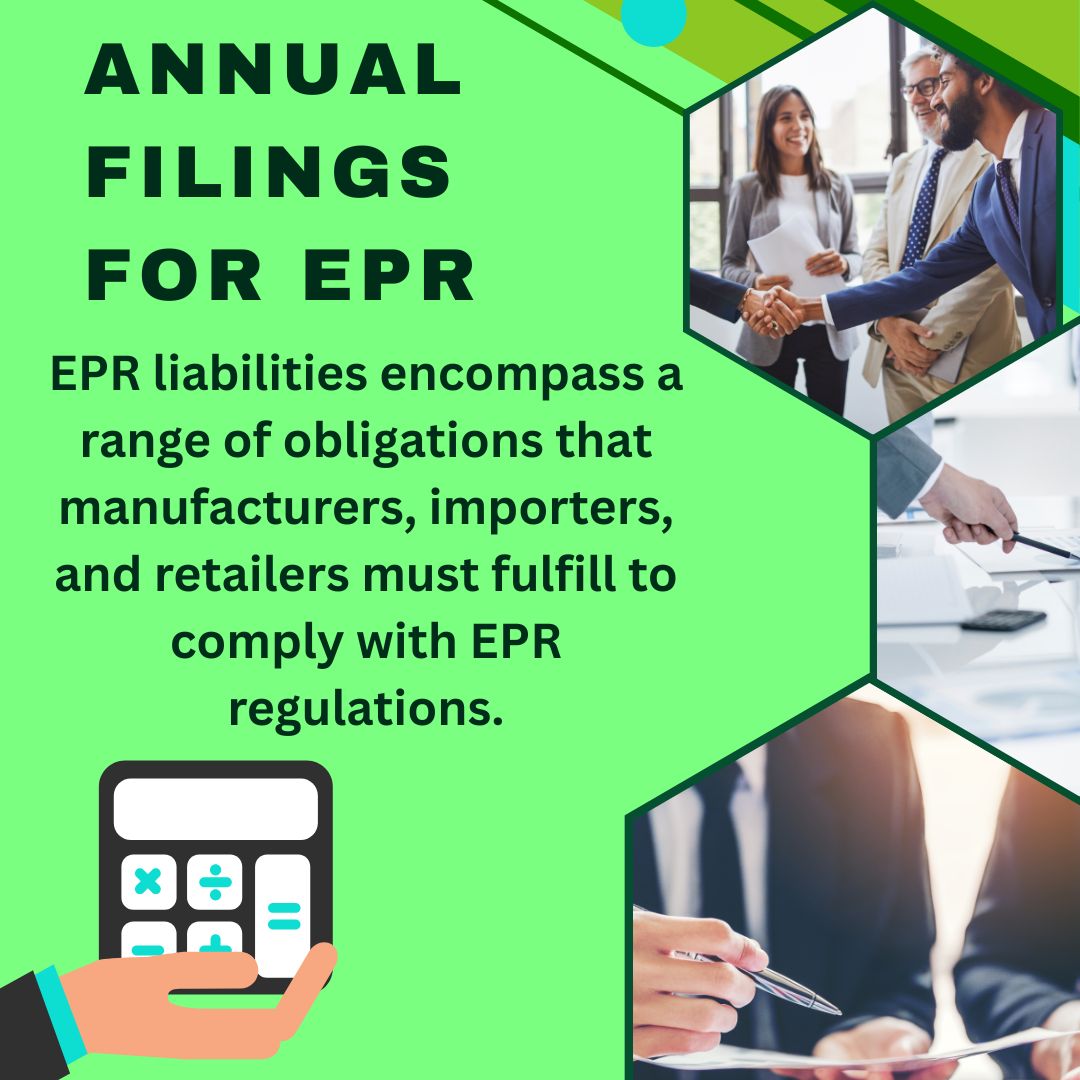Collection and Recycling:- Producers are required to establish systems for the collection and recycling of their products at the end of their life. This may involve setting up collection points, partnering with recycling facilities, or participating in take-back programs to ensure that products are properly disposed of and recycled.
Financial Contributions:- Manufacturers may be required to pay fees or contribute to a fund dedicated to EPR initiatives, such as recycling infrastructure, public education campaigns, or environmental cleanup efforts. These financial contributions support the implementation and operation of EPR programs and help cover the costs associated with waste management.
Challenges in Fulfilling EPR Liabilities
Fulfilling EPR liabilities presents several challenges for companies.
Complex Regulatory Landscape:- Establishing and operating EPR programs require significant financial resources and logistical support. Smaller companies and startups may struggle to meet EPR obligations due to limited budgets and infrastructure, hindering their ability to compete in the market.
Supply Chain Complexity:- Manufacturers often rely on complex supply chains with multiple suppliers and subcontractors, making it difficult to trace the origin and end-of-life management of their products. Ensuring transparency and accountability throughout the supply chain is essential for fulfilling EPR liabilities effectively.
Consumer Education:- Engaging consumers in responsible disposal and recycling practices is essential for the success of EPR programs. However, raising awareness and changing consumer behavior requires ongoing education and outreach efforts, which can be challenging to implement and sustain.
How Ewour Can Help Fulfill EPR Liabilities
Ewour offers comprehensive solutions to help companies fulfill their EPR liabilities and achieve compliance with regulatory requirements.
Regulatory Expertise:- Our team of environmental compliance experts provides in-depth knowledge of EPR regulations worldwide. We stay abreast of evolving legislation and help companies interpret and navigate compliance requirements across different jurisdictions.
Customized Solutions:- We offer customized EPR consulting services tailored to the specific needs and objectives of our clients. Whether you’re a multinational corporation or a small business, we can design a compliance strategy that aligns with your business goals and budget constraints.
End-to-End Support:- From EPR program design to implementation and monitoring, ewour provides end-to-end support to help companies fulfill their obligations effectively. We assist with product design, collection system setup, financial reporting, and stakeholder engagement to ensure comprehensive compliance.
Supply Chain Transparency:- Through our supply chain transparency solutions, we help companies trace the lifecycle of their products from production to end-of-life disposal. By mapping supply chains and identifying key stakeholders, we enhance visibility and accountability throughout the supply chain.
Consumer Engagement:- We develop targeted consumer education and outreach campaigns to promote responsible disposal and recycling practices. Through digital channels, social media, and community events, we raise awareness and encourage behavior change among consumers.
Technology Integration:- Our innovative technology solutions streamline EPR compliance processes and enhance operational efficiency. From digital reporting platforms to blockchain-based traceability systems, we leverage technology to simplify compliance and improve transparency.
EPR Annual Return Filing is a very important part of the EPR Return, so it is more important to fill it out on time, following the import segment. So if you are looking for EPR Annual Compliance services for businesses in India, this is the right place for you. We have years of expert teams; they can help businesses stay compliant, avoid penalties, and demonstrate a strong commitment to sustainability. With your waste provider, you get an efficient environmental for EPR Plastic Annual Compliance and many more. Rely on us in the matters of EPR compliance if you are looking in the right place right now.









